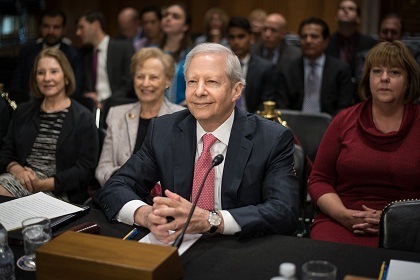Chinese manoeuvres further confounding Middle East
A conference in Doha on ‘Enriching the Middle East’s Economic Future’ offered many insights into the nature of geopolitical relations in the region and India’s significant role in it
 Courtesy: to put
Courtesy: to put
A conference in Doha on ‘Enriching the Middle East’s Economic Future’ offered many insights into the nature of geopolitical relations in the region and India’s significant role in it
 Courtesy: Pixabay/Comfreak
Courtesy: Pixabay/Comfreak
The two countries’ proposal to carry out a robotic sample-return mission to the Moon in the 2020s is a laudable attempt at catching up with Beijing’s rather more advanced lunar agenda. And there are many lessons that Japan can offer India
 Courtesy: Flickr/WhiteHouse
Courtesy: Flickr/WhiteHouse
The visit yielded no dramatic breakthrough. But Team Xi finally got the respect and validation it desired, and deserved. Trump rightly praised China’s success in meeting its own development goals and contributing to global growth. But he is unlikely to soften his stance on jobs lost to China or the more vexing structural issues
 Courtesy: MEA/Flickr
Courtesy: MEA/Flickr
Regional groupings in South Asia have turned out to be like diligent pupils whose report cards show performance below par. The reasons for such an impasse range from political divergences to the economic downturn and the much talked about China factor that has many implications for India
 Courtesy: The American Bazaar
Courtesy: The American Bazaar
What does the appointment of Kenneth I. Juster as ambassador mean for the India-U.S. bilateral relationship? The two countries are now strategic partners on several fronts, but have some policy differences to resolve
 Courtesy:
Courtesy:
The removal of 11 top ministers in the Riyadh government last week by the young crown prince Mohammad bin Salman, is a geopolitical upheaval, the implications are serious. Domestically, the kingdom is seeking to liberalise its conservative society and move away from oil-dependency – evident from the expected listing of its crown jewel Aramco. For India, which imports oil largely from West Asia, instability could cause a spike in prices, leaving less for its ambitious reforms. Globally, there is now space for new alignments – in the Great Power plays, in the Shia-Sunni rivalry, and in the war on terrorism.
 Courtesy: Flickr
Courtesy: Flickr
The 200-year-old history of the Indian Chinese population – currently 3,000 – in Calcutta and Bombay shows how the two civilisations were deeply connected. Buddhism and trade forged the link in the ancient past, but a forgotten aspect is the more recent, once vibrant Chinese presence in India. The bustling China Towns of yore fell silent after the 1962 India-China war that impelled the migration of the Indian Chinese to Canada, Hong Kong and Australia. Revisiting this period can offer many lessons in cultural assimilation and diplomacy in the more fractious present
 Courtesy:
Courtesy:
For the last fortnight, the world has been captivated by the events of the 19th National Congress of the Communist Party of China, which elevated Chinese President Xi Jinping to the status accorded to Chairman Mao. Xi Jinping has consolidated his position in the CCP, strengthened his hold over the country and provided a policy road-map for the next five years. 'Xi' Jinping Thought' is now enshrined In the Chinese Constitution just as firmly as was 'Mao Zedong Thought'.
 Courtesy:
Courtesy:
Professor Madhav Das Nalapat sits down with Manjeet Kripalani to discuss the ascendance of Xi Jinping into the pages of the Chinese Constitution and what this new status quo means for India and it's strategic interests.
 Courtesy: Forex Repository
Courtesy: Forex Repository
Xi Jinping, who became the first leader since China’s modernisation to have his name inscribed—during his tenure—in the Chinese Communist Party’s Constitution, will fine-tune and popularise Deng Xiaoping’s famous phrase, ‘Socialism with Chinese Characteristics’, to suit a new era. He has adhered to Party rules while subtly subverting long-standing traditions